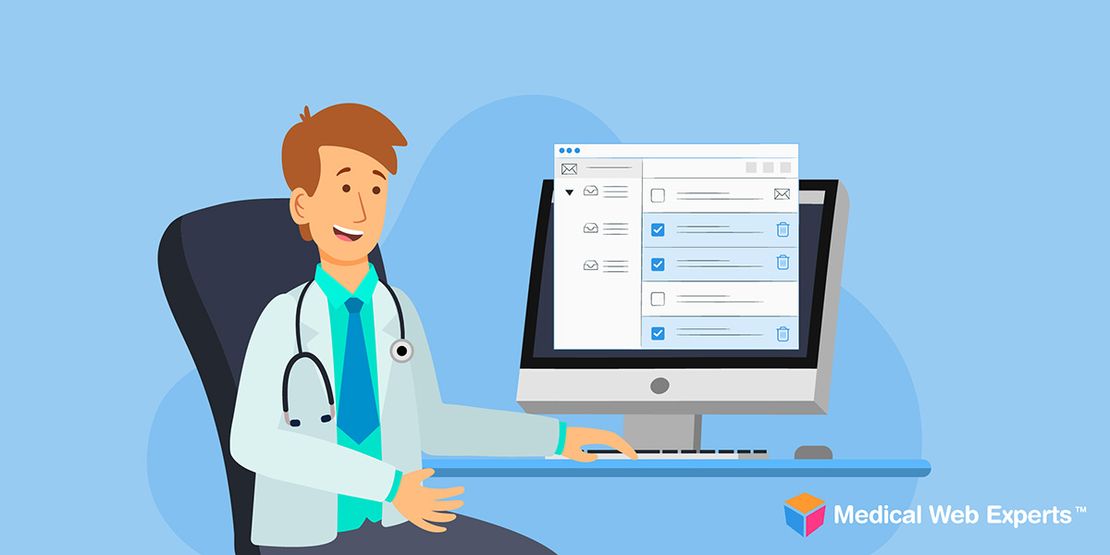Last updated: June 27, 2025
What is CCPA? CCPA, meaning California Consumer Privacy Act, remains one of the toughest privacy laws in the US, with new amendments raising penalties and adding fresh compliance requirements. For healthcare businesses, CCPA compliance is more critical than ever, especially for those building custom web or mobile applications, medical device companion apps, or patient portals that handle sensitive data.
Understanding CCPA regulations, updates, and their relationship to HIPAA and healthcare technology is essential for ensuring your software projects remain compliant and competitive. At Medical Web Experts, we build medical software apps and portals that meet strict HIPAA and CCPA compliance requirements for effective patient engagement. Let’s break it down.
Key Takeaways
- CCPA compliance is evolving rapidly, with new 2025 updates and proposed regulations that raise stakes for healthcare businesses handling personal data beyond HIPAA’s scope.
- Custom healthcare app development offers the best path to meet strict CCPA requirements, enabling features like consent tracking, privacy notices, and advanced audit logs tailored to complex healthcare workflows.
- AI use in healthcare apps triggers heightened CCPA obligations for transparency and consumer rights, making it critical for organizations to integrate privacy-by-design into all digital health solutions.
Table of Contents
- What is CCPA?
- What Counts as Personal Information Under CCPA?
- CCPA Updates in 2025 and Proposed Changes
- Does CCPA Apply to Healthcare Businesses?
- CCPA vs. HIPAA: What’s the Difference?
- How to Ensure Your App is CCPA Compliant
- AI and CCPA
- Ready-Made Compliance Solutions
- Conclusion
What is CCPA?
CCPA is a state law designed to give Californians more control over how businesses collect, store, and sell personal information. Originally effective in 2020, the law has evolved significantly, especially with the 2025 updates.
Under the CCPA regulations, businesses must honor consumer requests to:
- Know what personal information is collected about them
- Understand if their data is sold or disclosed, and to whom
- Opt out of the sale of personal information
- Access or delete their personal information
- Receive equal service and pricing, even if they exercise privacy rights
What Counts as Personal Information Under CCPA?
The CCPA meaning of personal information is broad, covering:
- Identifiers like names, addresses, emails, IPs
- Commercial purchase data
- Biometric data
- Internet activity
- Geolocation data
- Employment or education information
- Inferences used to profile individuals
Businesses should note that this list is not static. Regulators may expand categories as technology evolves.
CCPA Updates in 2025 and Proposed Changes
Several important changes to CCPA took effect in 2025:
- Threshold Updates: Businesses must comply if they exceed $26.6 million in annual revenue, up from $25 million.
- Annual Privacy Policy Requirement: Companies must review and update privacy policies every 12 months (2).
- Cybersecurity Audits & Risk Assessments: Proposed rules require regular risk assessments and reporting for medium and large businesses.
- AI and Automated Decisions: New disclosures and opt-outs are proposed for businesses using AI in decision-making.
- Delete Act: Systems must enable consumers to delete data via an official platform, with implementation planned for late 2025.
The California Privacy Protection Agency (CPPA) is still working on further updates to CCPA regulations, expected by November 2025 (3). While some of the earlier, more burdensome proposals have been scaled back, businesses should prepare for key changes:
- Consent and Disclosures: Businesses must let consumers withdraw consent at any time and include privacy policy links on all pages where data is collected.
- Cybersecurity Audits: Starting in 2028, there will be new phased deadlines based on revenue size; audits can leverage existing frameworks like NIST.
- Risk Assessments: Required for activities like selling data, using sensitive information, or deploying Automated Decision-Making Technology (ADMT) for significant decisions (e.g., healthcare services).
- ADMT Rules: Now limited to systems that replace human decisions in critical areas like healthcare, finance, and employment, with simplified consumer rights around notices and access.
Healthcare businesses should begin planning to ensure future compliance, especially when developing custom solutions that handle sensitive data.
Does CCPA Apply to Healthcare Businesses?
Healthcare organizations operating anywhere in the US already face a complex compliance landscape because of HIPAA. While both laws have some overlap, it’s important to understand which parts of your healthcare app are subject to which regulation.
The CCPA generally does not apply to:
- PHI is governed exclusively by HIPAA
- De-identified or aggregate health data
- Publicly available government records
However, CCPA does apply to:
- Personal information outside HIPAA scope, such as marketing lists, website analytics, or app usage data
- Data collected by non-healthcare divisions of a hybrid entity
- Information gathered through conferences, marketing campaigns, or device companion apps
Even if your organization lacks a California office, CCPA applies if you conduct business with California residents and meet the revenue or data thresholds above.
CCPA vs. HIPAA: What’s the Difference?
While both laws protect sensitive data, they differ significantly:
HIPAA vs. CCPA
A high-level comparison of two key data privacy regulations.
Scope
Applies To
Rights Granted
Penalties
How to Ensure Your App is CCPA Compliant
Healthcare businesses using generic software may struggle to meet the strict requirements for CCPA compliance. To guarantee CCPA compliance, custom healthcare app development is a better route, allowing you to incorporate:
- Tailored privacy notices integrated into portals and apps
- Consent tracking mechanisms for data sharing
- Data deletion workflows compliant with the Delete Act
- Role-based access controls to separate HIPAA-regulated data from broader consumer data
- Advanced audit logging for cybersecurity audits
For example, a medical device companion app might collect usage data outside HIPAA’s scope. A custom solution can be designed from the ground up to ensure this data:
- Properly disclosed under CCPA
- Accessible to consumers upon request
- Deletable if required
Off-the-shelf systems rarely offer such fine-grained controls, leaving you at the vendor’s mercy regarding compliance and security updates, and potentially locking you out of serving Californian residents.
AI and CCPA
One key element of CCPA that healthcare organizations should carefully consider is its regulations regarding the use of artificial intelligence (AI). AI is transforming healthcare apps, from patient-facing tools like symptom checkers and virtual health coaches to hospital systems that analyze patient trends or recommend treatment plans.
Under the CCPA, using AI triggers strict transparency and consumer rights requirements. Healthcare businesses developing AI-powered apps must ensure users are clearly informed about how their data feeds into these systems, provide opt-outs where required, and maintain safeguards around sensitive data processing. Building custom solutions allows organizations to integrate these privacy controls seamlessly, ensuring compliance while delivering innovative AI capabilities.
Ready-Made Compliance Solutions
Custom software development is usually recommended for any healthcare app subject to these complex regulations. However, there are some options for healthcare organizations that need a pre-built solution that can be implemented quickly. BridgeInteract, MWE’s sister company, offers ready-made, modular patient engagement tools that include:
- Customizable privacy notice displays
- Audit logs for user activity
- Consent tracking
- Secure messaging that integrates with both EMRs and external systems
BridgeInteract helps organizations quickly align patient portals and apps with CCPA regulations, while keeping the flexibility to customize as regulations evolve. Learn more about BridgeInteract’s solutions here.
Conclusion
Understanding CCPA regulations and how they interact with healthcare operations will be crucial for any organization handling consumer data in the US in 2025. Whether you’re building a patient portal, mobile app, or a broader digital front door solution, your technology must incorporate compliance from the ground up.
At Medical Web Experts, we specialize in designing secure, compliant systems tailored for the complexities of modern healthcare. Our experienced team is here to help your business with technology that meets and exceeds HIPAA, CCPA, and beyond.
Contact us today to discuss how we can help secure your business’s software and your patients’ trust.
Read more:
- Custom vs Off-the-Shelf Medical Software: Pros and Cons
- HIPAA-Compliant Messaging: How to Safely Share ePHI
- How To Design a HIPAA-Compliant Website
References
- California Privacy Protection Agency. (2024) Announcement of 2025 Inflation Adjustments. Available at: Link. (Accessed: 27 June 2025).
- Workplace Privacy Report. (2025) CCPA Compliance Reminder: Annual Update Requirement for Online Privacy Policy. Available at: Link. (Accessed: 27 June 2025).
- McDermott Will & Emery. (2025) Unpacking the Latest Proposed CCPA Regulations. Available at: Link (Accessed: 30 June 2025).

